If you are a welder, then it is very important that you stay safe while you are working. Every welder should own a good welding helmet. It is not news that welding releases harmful UV rays that can damage a welder’s eyes. The only way to prevent eye damage is to get a high-quality welding helmet.
We’ve tested various welding helmets and come up with the top 5 welding helmets in 2024 along with what you need to look into before selecting the best welding helmet.
Table of contents
Why You Need a Quality Welding Helmet
Welding involves fusing metal together by using heat and pressure. So, although it may appear simple, there are many complicated steps involved in the process. It’s important to take preventative action to guarantee your safety and the protection of others. Using safety equipment to protect your head and eyes during welding is a smart idea. This is where top welding helmets come into the picture.
Without eye protection, you run the danger of damaging your cornea, which might result in permanent damage to your eyes and loss of eyesight. Additionally, a good welding helmet helps shield your hair from heat damage while welding. But what is a good welding helmet? A good helmet for welding is one that protects your eyes from even the most harmful rays of UV.
Types of Welding Helmets
As with anything, you have several different types of welding helmets that serve different purposes. Let’s take a look at the types of welding helmets.
Passive Welding Helmets
Helmets designed for passive use are always protective. Put simply, the visor of a passive helmet is prepared to shield your eyes from light the instant you put it on, whether you have a lit flashlight on or not. Passive helmet lenses are made of glass with a unique coating to protect you from ultraviolet and infrared light. Passive helmets are affordable welding helmets that are light in weight.
Also, passive helmets are optically clear. So, you can get a better vision while using a flashlight. Many welders choose passive helmets in spite of the sophisticated automatic function of auto-darkening helmets. The primary reasons for this are its low cost and the accessibility of dark lenses for simple replacement.
Auto-Darkening Welding Helmets
Auto-darkening welding helmets are made with advanced auto-darkening filters that automatically modify the shade lens in reaction to the welding arc. This helps welders work continuously without taking off the helmet.
The best auto-darkening welding helmets have advanced features like arc sensors, grind modes, sensitivity management, and customizable shade ranges built into the helmet designs.
Fixed Shade vs. Variable Shade Helmets
There are basically two choices available for a shade when selecting a welding helmet. Fixed shade options are the least expensive, but variable models provide users with more freedom of choice.
Fixed shade: When detecting an arc, the majority of fixed shadow models begin at a #10 lens. You can then choose a different tint according to the chart and amperage. In case you mostly use a single welding method and substance, this may be an affordable choice that offers sufficient safety for your operation.
Variable shade: These are great if you work with mixed materials or do multiple types of welding, as they provide the user with varying control using lenses #9 through #13. It’s a good option if you are a professional welder.
Key Features to Look for in the Best Welding Helmet
You need to consider a few factors before choosing a welding helmet. This will help you figure out which is the best welding helmet for beginners and which is appropriate for experts.
Lens Quality and Clarity
The quality and clarity of your lens will determine how efficiently you will be able to work on welding. It is believed that wearing a clear lens can reduce exhaustion and increase productivity. Also, better lens clarity makes it simpler to identify faults while you weld.
Rating systems are used to designate lens clarity. A 1/1/1/1 rating denotes flawless optical clarity, meaning the vision behind the lens is undistorted.
Comfort and Fit
While it may seem obvious, comfort and safety depend on a perfect fit. For maximum protection against welding rays, a suitable fit is essential. Make sure your eyes, neck, and ears are protected by the helmet to prevent burns, splatter, and UV radiation.
Whatever the shape and size of your head, the best headgear fits snugly but comfortably and can be adjusted to suit your needs. You must have enough padding inside the helmet to keep you comfortable even if you’re constantly using it for hours.
Viewing Area
A large viewing area is preferred by most welders because it provides a better view of the workpiece, arc, and puddle. For the hobbyist, one viewing pane may be enough. TIG welders may find it easier to concentrate when working with a narrower viewing area. Additionally, it’s usually less expensive than a wide-field vision helmet.
Power Source
You can either choose a battery-operated welding helmet or a solar-powered helmet. Helmets that run on solar power not only tend to be lighter and more comfortable to wear all day. The solar power also extends the life of your standard battery. Compared to a fully battery-powered helmet, this one is far more affordable because solar power is doing the majority of the job.
Reaction Time
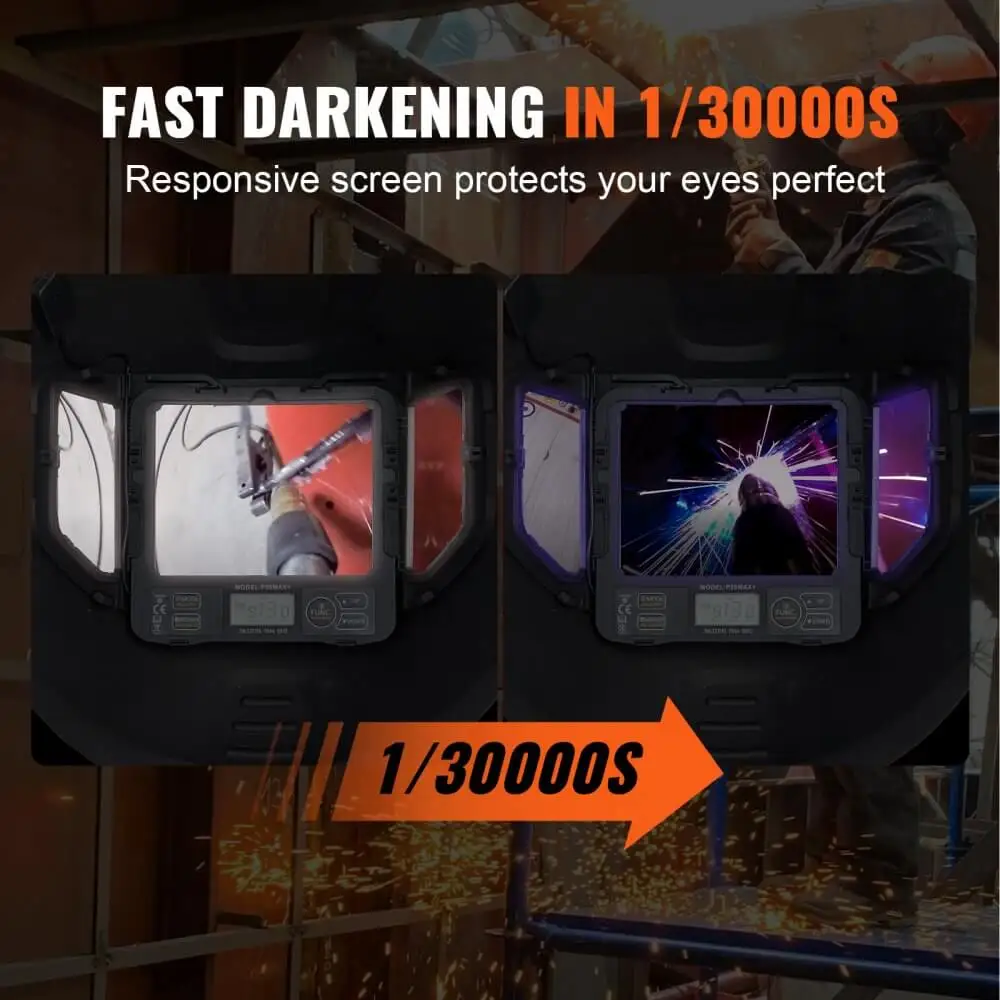
Reaction time is very important because your eyes need protection as quickly as possible. To give you an idea, professional-level lenses are typically rated as high as 1/20,000 of a second, whereas hobbyist entry-level lenses are typically rated at 1/3,600 of a second.
Top Welding Helmets for 2024
It’s time to find out which is the best helmet for welding for your use. We have a list of some awesome welding helmets that cover almost every important feature you could need.
VEVOR Auto Darkening Welding Helmet
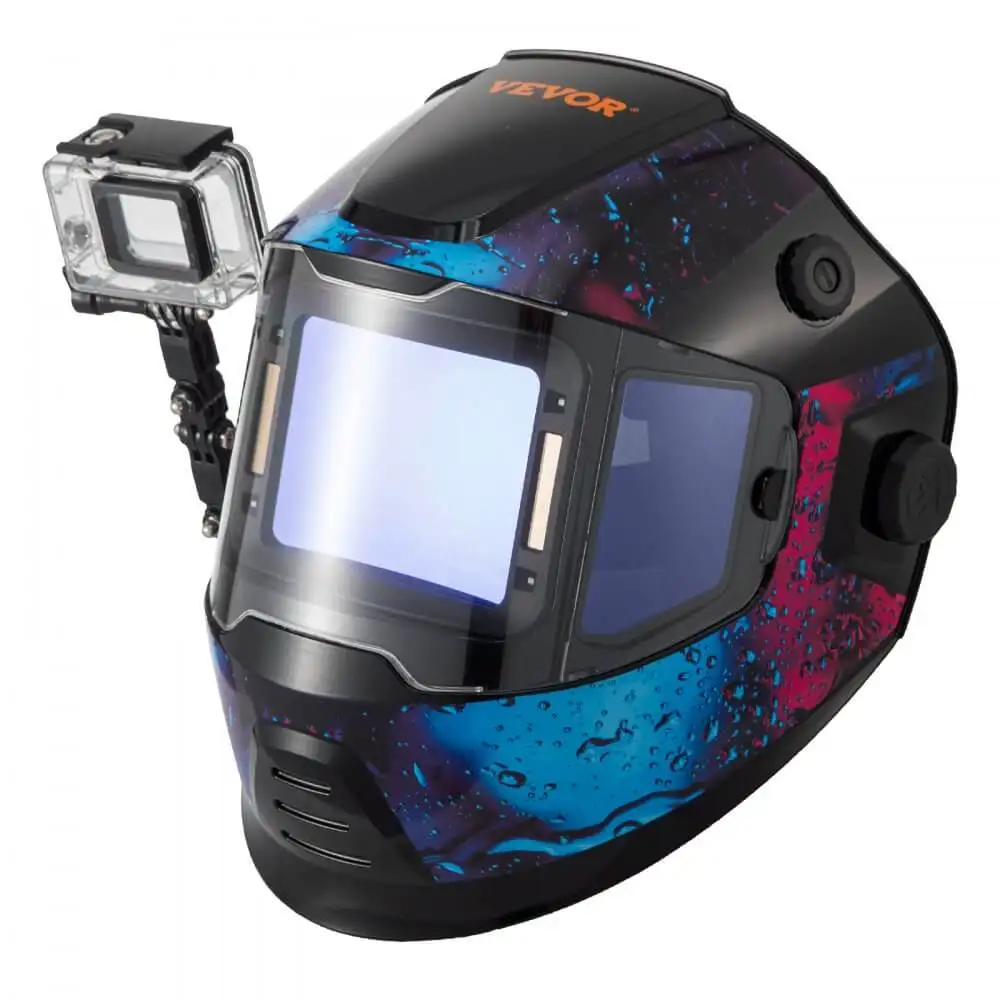
VEVOR’s welding helmet is one of the best auto-darkening welding helmets. It has a reaction time of 1/30000 seconds. It features four arc sensors that can sense even the most minor changes in light. VEVOR’s auto-darkening welding helmet can easily block UV and IR rays.
This helmet comes with a large viewing area of 4.25” x 3.23”. So, you can work in different environments with the one-in-all VEVOR welding helmet. Additionally, its lens adapts to different work settings by controlling the shade. You can wear the helmet for long periods of time because this helmet is lightweight and handles a working temperature of about 131℉.
Recommended For Your Project
Antra AH6-260-000
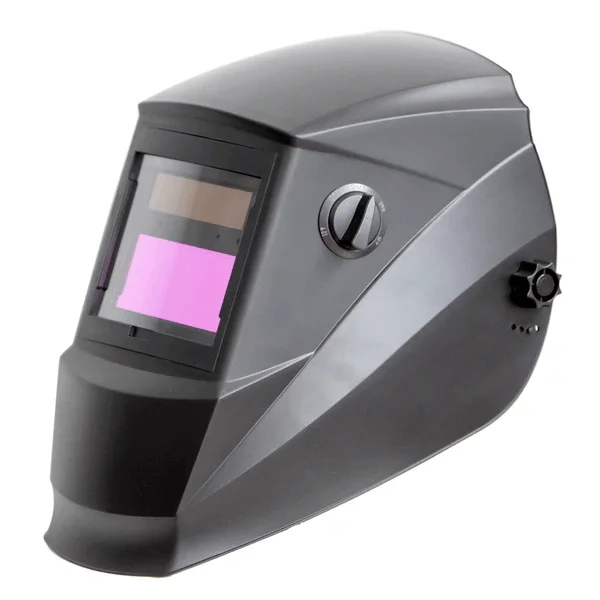
Antra AH6-260-000 is a top-rated auto-darkening helmet. The smart chip-controlled 4-sensor auto-darkening lens of the Antra AH6-260 Series welding helmet responds incredibly quickly to electric arcs from MMA, MIG, TIG, or plasma applications. It provides a good vision of the entire welding process with a wide area of 3.86”. x 1.73”.
You can use this lightweight welding helmet for cutting, grinding, and welding tasks because of its great versatility. For a significantly lower price, it is the ideal replacement for welding helmets with fixed-shade glass. It is the best inexpensive welding helmet you can find for beginners.
Jackson Safety BH3
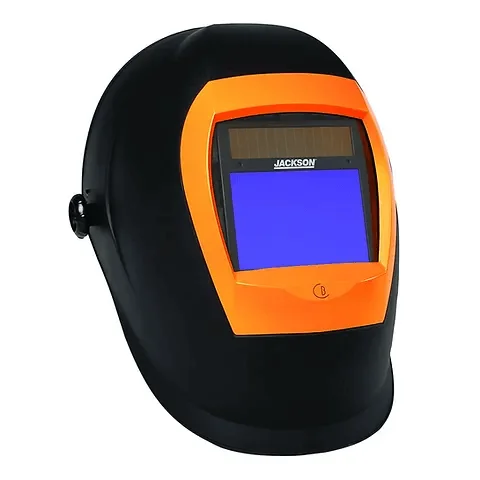
Jackson Safety BH3 is another one of the best auto-darkening welding helmets. The welder can see well at various angles thanks to the BH3 Auto darkening filter lens. It has a 1/1/1/1 ratio for good clarity, light diffusion, fluctuation of luminous transmittance, and angular dependency.
The Jackson Safety ADF is equipped with sensitivity and delay settings for adaptability to various surroundings and work lengths. Its variable shade range, which spans from 9 to 13, allows for screening and protects the wearer’s eyes from radiant energy.
ESAB SENTINEL A50
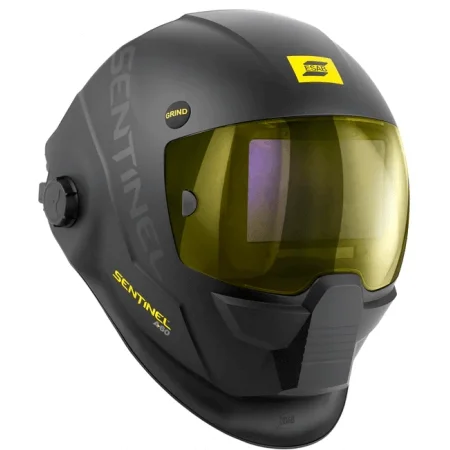
The lightweight welding helmet Esab Sentinel A50 has an externally actuated grind button and a color touchscreen control panel. It is one of the top rated welding helmets for professionals.
Sentinel’s 5-point, adjustable Halo headgear offers balance and comfort. Additionally, the 9.28-square-inch view area offers superb clarity and visibility. The A50 is primarily priced for use by experienced welders. So, you can expect a high price point.
Lincoln Electric VIKING 3350
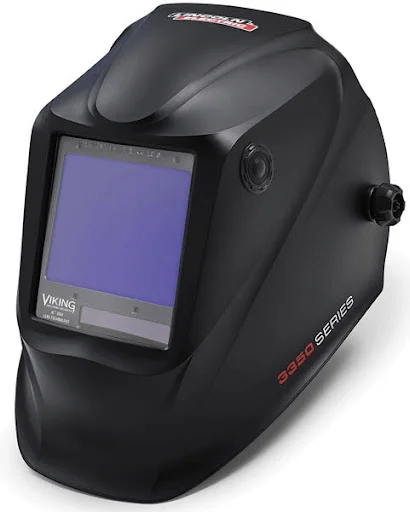
The Viking 3350 welding helmet is the best auto-welding helmet. With a flawless 1/1/1/1 optical clarity grade, the 4C technology lens provides you with the clearest image of your welds, with significantly less green tinge and more detail clarity. It weighs only 1.4 pounds and features four arc sensors in addition to an extra big viewing area. With the new external grind button on this helmet, you can quickly switch between grind and weld mode without taking off the helmet or your gloves!
How to Maintain Your Welding Helmet
All that’s actually required for proper maintenance is to store your welding helmet in a clean location, clean it well after each use, and replace any worn-out parts on schedule. Better quality helmets typically have replaceable, longer-lasting parts in addition to improved performance.
Regular Cleaning
You’ll need some buffing compound and a buffing wheel to try this procedure, but the investment is well worth it. Just be careful to choose the cake-form compound.
- Wear protective goggles and fasten the polishing wheel to a drill or grinder. Next, turn it on.
- After it starts spinning, give the wheel a tiny bit of polishing compound.
- After applying the buffing compound, gently press your welding helmet’s soiled cover lens up against the rotating wheel.
- To make sure the lens is well-cleaned, gently move it around. Use just enough force for buffing.
The welding hood cover lens can also be cleaned with standard wax-based polishes, such as those used on furniture and automobiles. Using it to wipe the lens removes dirt and leaves a layer of protection behind to prevent scratches. Applying polish, in my opinion, can also lessen smearing and fogging.
Storage Tips
Your welding helmet should be kept out of the dust and other impurities in a bag. When storing the helmet, choose dry conditions because high humidity can damage metal or electronic parts.
Battery Maintenance
You should change the batteries when the low battery light lights up. Extra batteries should be kept on hand in case you need them. You can get an hour’s worth of full charge out of some batteries that charge quickly.
Regular Inspections
Look for any wear and tear indicators on your helmet, such as dents, cracks, or other damage every two months. Consider whether the hood has to be thoroughly cleaned or if a quick wipe-down would do while you’re at it.
Inspect all welding helmet accessories and parts carefully, including the sweatband and knobs. Replace any damaged parts as soon as possible to guarantee optimal comfort and functionality.
Frequently Asked Questions About Welding Helmets
What is the best welding helmet for beginners?
The VEVOR welding helmet is the best for beginners as well as professionals. It has an auto-darkening lens that protects your eyes, face, and neck from harmful UV and IR radiation. It also does not require a lot of maintenance, so it’s a good choice for beginners.
How do auto-darkening helmets work?
Welding helmets with auto-darkening features have sensors up front. Sensors pick up light and radiation from the welding arc, which sets off the auto-darkening feature. The best welding hoods have four or more sensors, although some helmets only have two. You will receive arc flashing when welding in crowded areas if your two sensors are occluded or fail to detect the arc.
Can I use a welding helmet for other tasks?
Welding helmets can be used for grinding and during solar eclipse as well. It is safe to see a solar eclipse while wearing a welding helmet with a shade level of 12 or above.
How long do welding helmets last?
If you take good care of your welding helmet, it can last for up to ten years. Make sure you check the parts regularly and replace them whenever necessary.
Conclusion
After carefully testing and reviewing a lot of welding helmets, our pick is surely the VEVOR welding helmet. You can see for yourself on our official website how well-liked the helmet really is. It is one of the only welding helmets that offer so many advanced features at an affordable price.

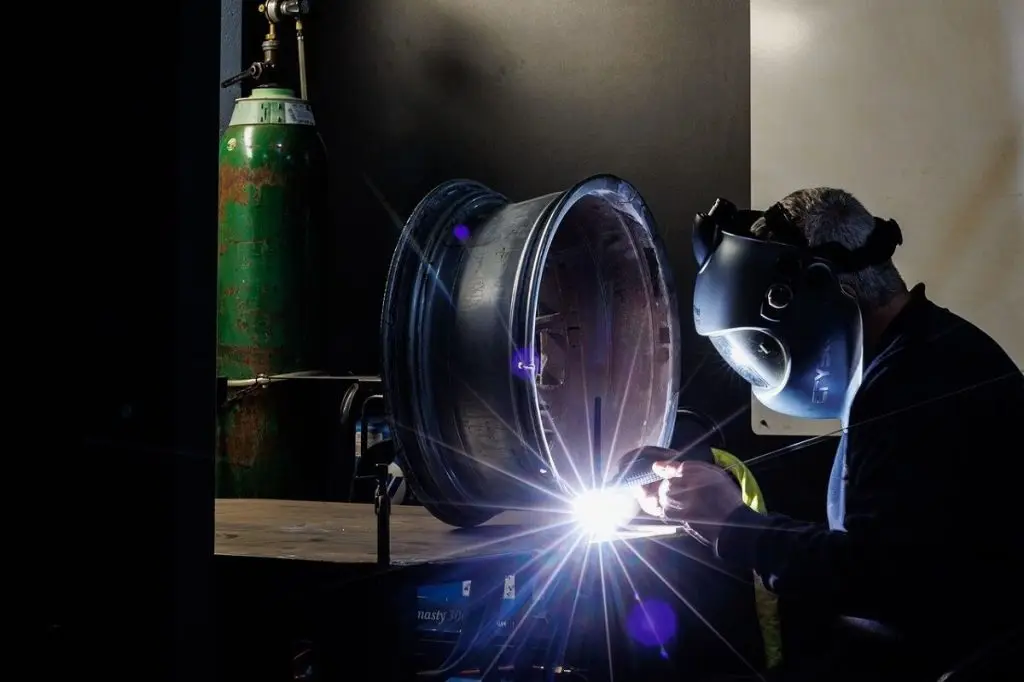
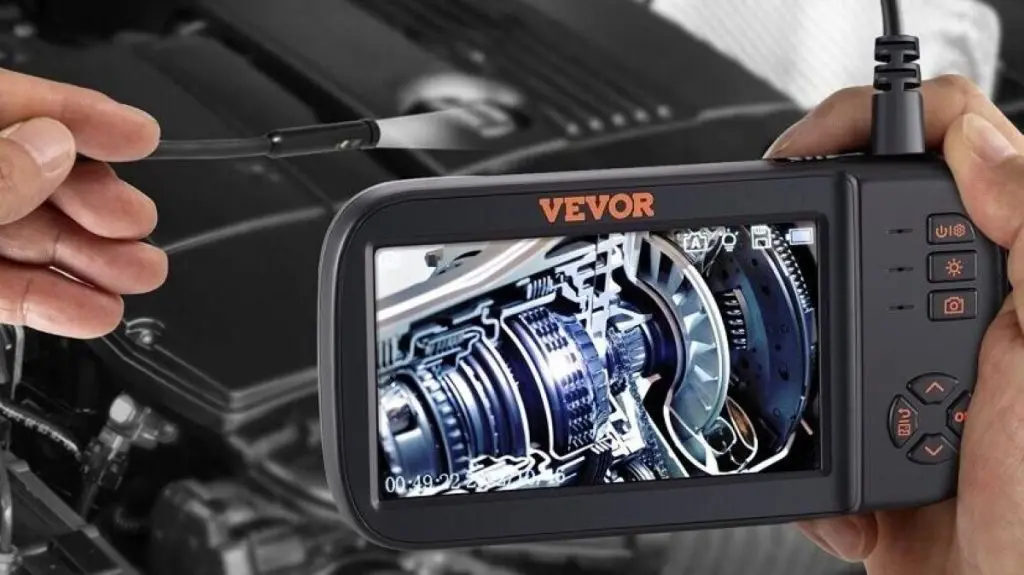
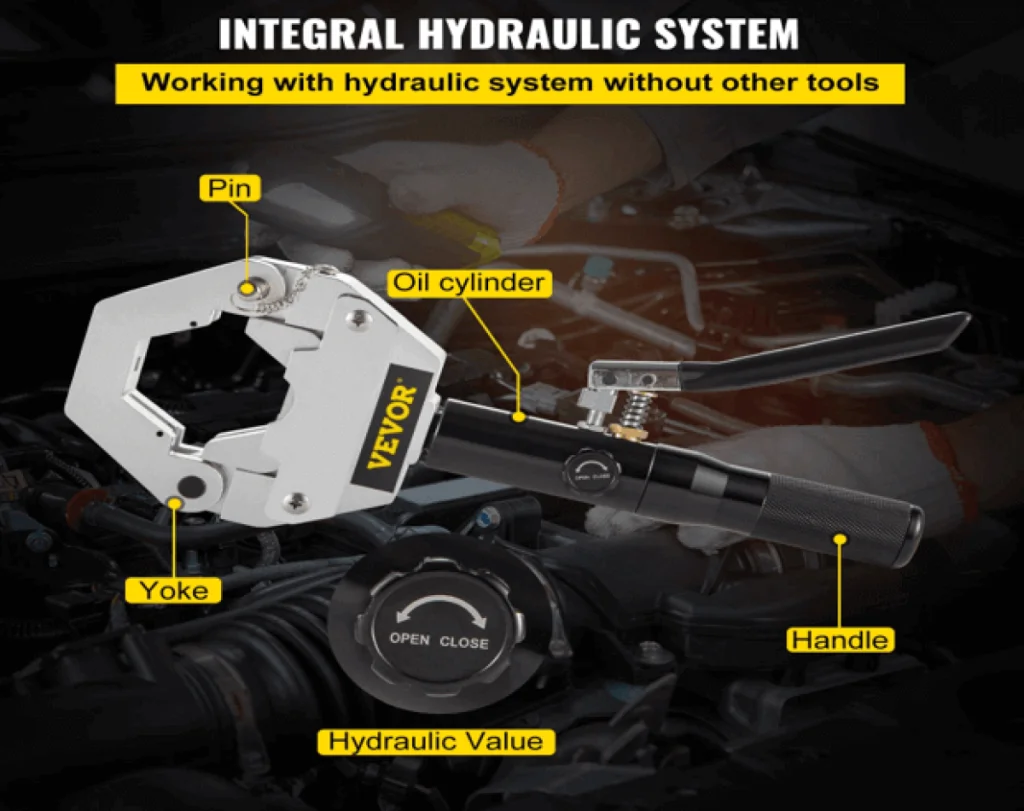
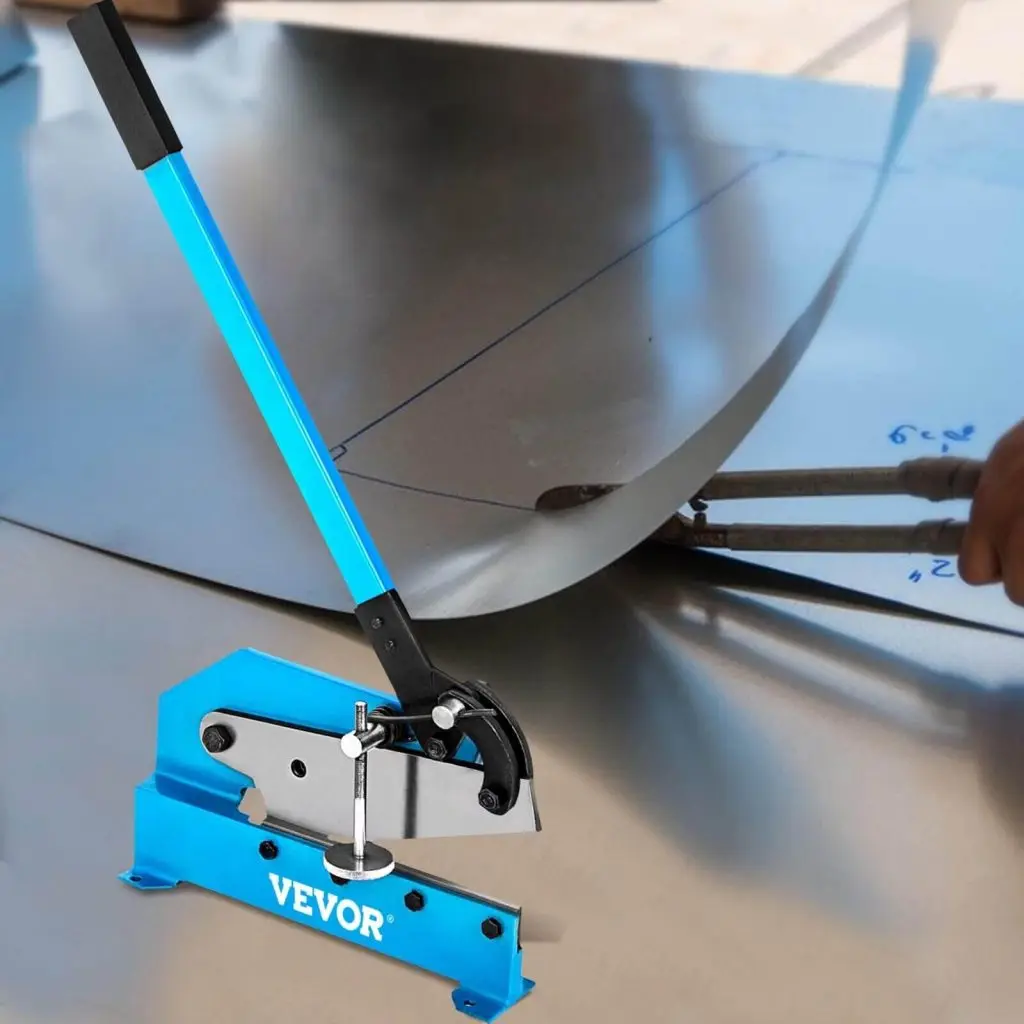
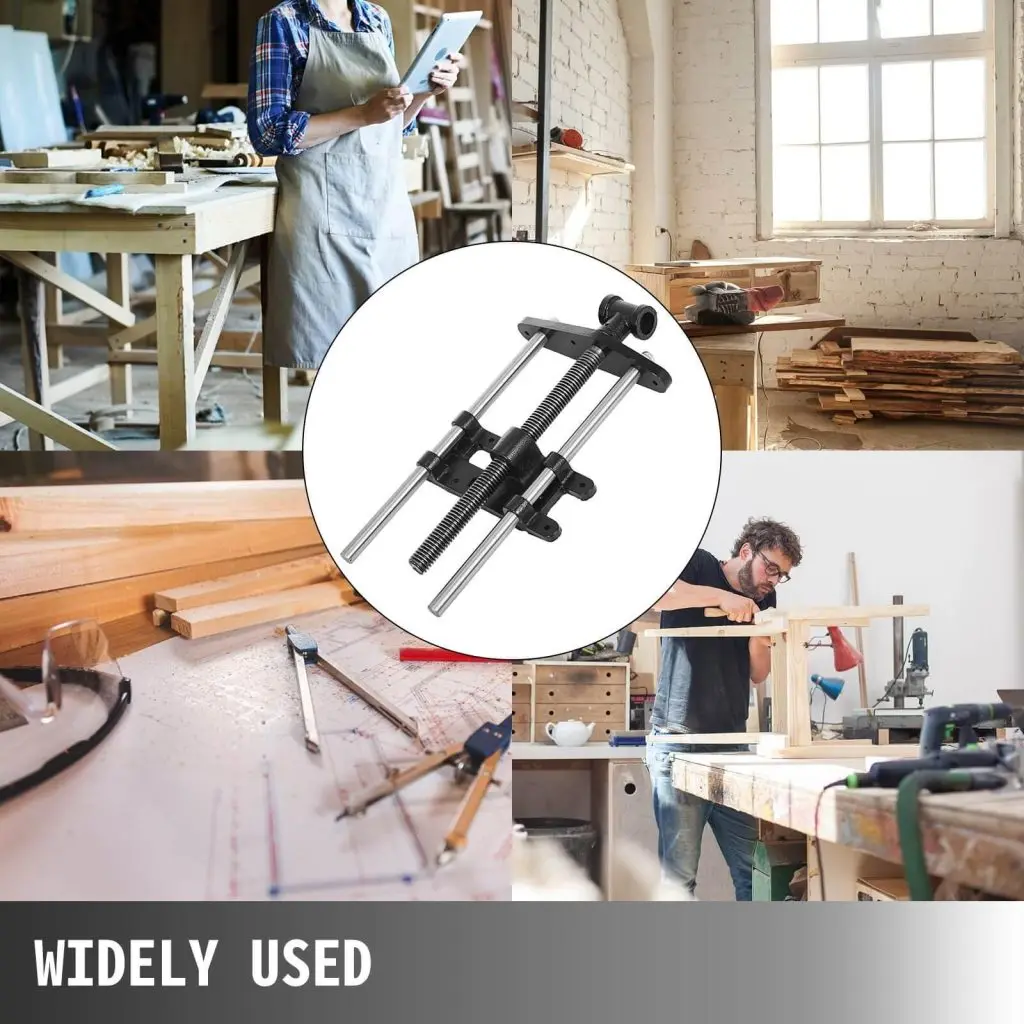
 Arabic
Arabic Danish
Danish Dutch
Dutch English
English Finnish
Finnish French
French German
German Hungarian
Hungarian Italian
Italian Norwegian
Norwegian Portuguese
Portuguese Romanian
Romanian Russian
Russian Slovak
Slovak Spanish
Spanish Swedish
Swedish